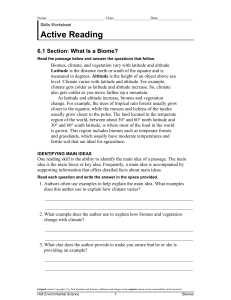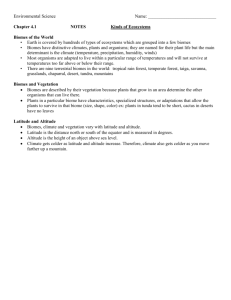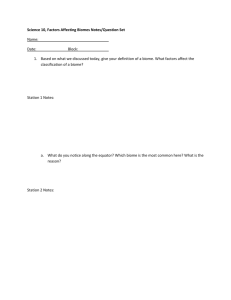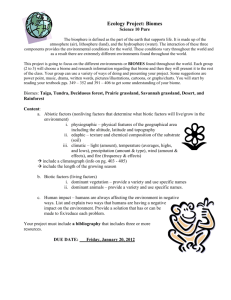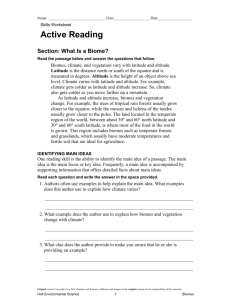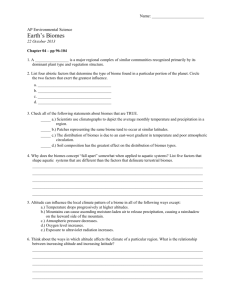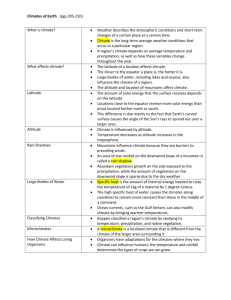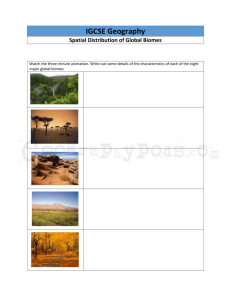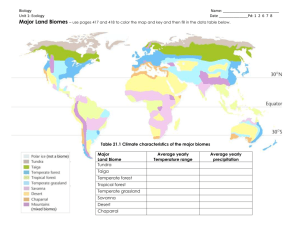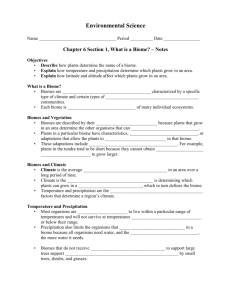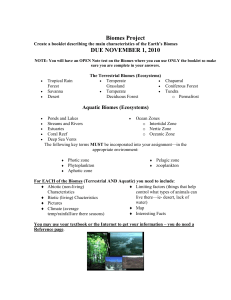What Is a Biome?
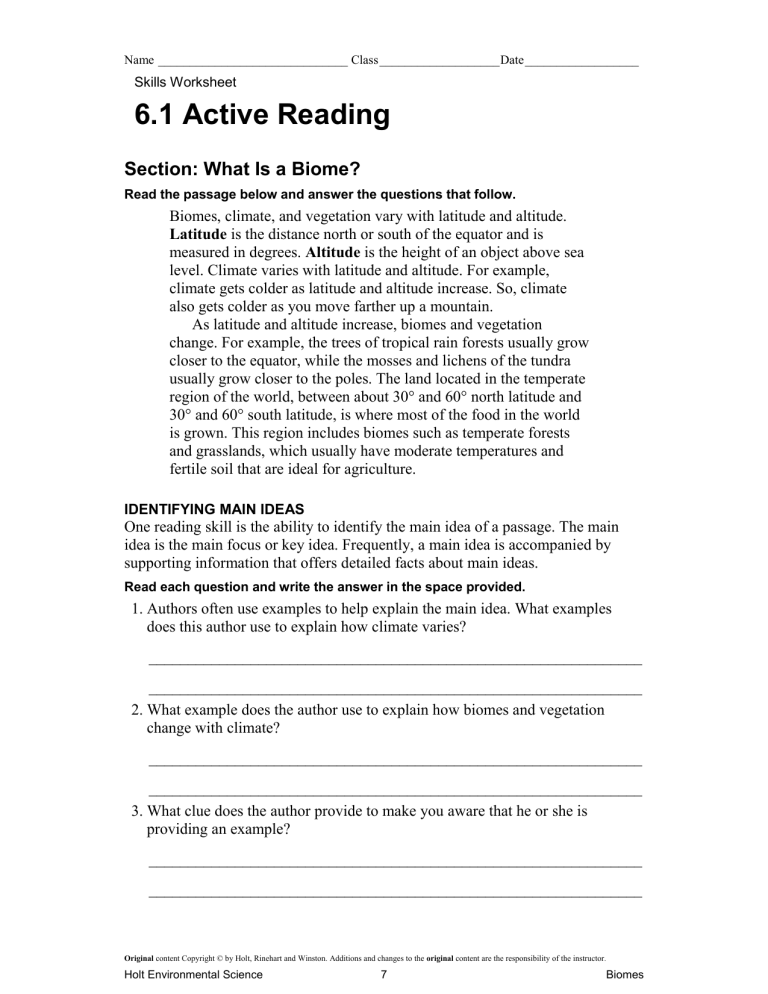
Name ______________________________ Class ___________________ Date __________________
Skills Worksheet
6.1 Active Reading
Section: What Is a Biome?
Read the passage below and answer the questions that follow.
Biomes, climate, and vegetation vary with latitude and altitude.
Latitude is the distance north or south of the equator and is measured in degrees. Altitude is the height of an object above sea level. Climate varies with latitude and altitude. For example, climate gets colder as latitude and altitude increase. So, climate also gets colder as you move farther up a mountain.
As latitude and altitude increase, biomes and vegetation change. For example, the trees of tropical rain forests usually grow closer to the equator, while the mosses and lichens of the tundra usually grow closer to the poles. The land located in the temperate region of the world, between about 30° and 60° north latitude and
30° and 60° south latitude, is where most of the food in the world is grown. This region includes biomes such as temperate forests and grasslands, which usually have moderate temperatures and fertile soil that are ideal for agriculture.
IDENTIFYING MAIN IDEAS
One reading skill is the ability to identify the main idea of a passage. The main idea is the main focus or key idea. Frequently, a main idea is accompanied by supporting information that offers detailed facts about main ideas.
Read each question and write the answer in the space provided.
1. Authors often use examples to help explain the main idea. What examples does this author use to explain how climate varies?
_______________________________________________________________
_______________________________________________________________
2. What example does the author use to explain how biomes and vegetation change with climate?
_______________________________________________________________
_______________________________________________________________
3. What clue does the author provide to make you aware that he or she is providing an example?
_______________________________________________________________
_______________________________________________________________
Original content Copyright © by Holt, Rinehart and Winston. Additions and changes to the original content are the responsibility of the instructor.
Holt Environmental Science 7 Biomes
Name ______________________________ Class ___________________ Date __________________
Active Reading continued
4. Where is the temperate region of the world located?
_______________________________________________________________
_______________________________________________________________
5. Name two biomes that are located in the temperate region.
_______________________________________________________________
VOCABULARY DEVELOPMENT
Read each question and write the answer in the space provided.
6. The distance north or south of the equator is called _____________________.
7. The height of an object above sea level is called _______________________.
RECOGNIZING SIMILARITIES AND DIFFERENCES
One reading skill is the ability to recognize similarities and differences between two phrases, ideas, or things. This is sometimes known as comparing and contrasting.
Read each question and write the answer in the space provided.
8. Compare vegetation near the poles and vegetation near the equator.
_______________________________________________________________
_______________________________________________________________
9. How are latitude and altitude similar? How are they different?
_______________________________________________________________
_______________________________________________________________
RECOGNIZING CAUSE AND EFFECT
One reading skill is the ability to recognize cause and effect.
Read each question and write the answer in the space provided.
10. What causes climate to vary?
_______________________________________________________________
11. What causes biomes and vegetation to change?
_______________________________________________________________
12. Why is the temperate region of the world a good place to grow food?
_______________________________________________________________
13. What happens as you move farther up a mountain?
_______________________________________________________________
Original content Copyright © by Holt, Rinehart and Winston. Additions and changes to the original content are the responsibility of the instructor.
Holt Environmental Science 8 Biomes
